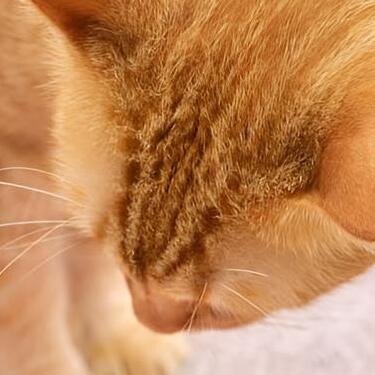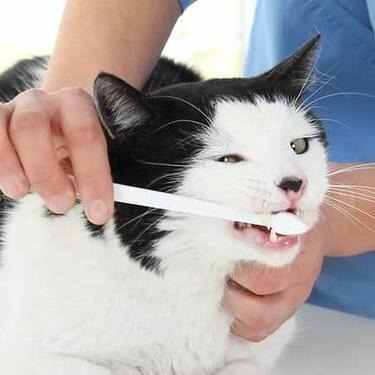
-
Find the right food for your pet
Take this quiz to see which food may be the best for your furry friend.
Find the right food for your pet
Take this quiz to see which food may be the best for your furry friend.
Featured products
 Adult Healthy Cuisine Roasted Chicken, Carrots & Spinach Stew Dog Food
Adult Healthy Cuisine Roasted Chicken, Carrots & Spinach Stew Dog FoodDelicious roasted chicken paired with tender vegetables in a succulent stew
Shop Now Small & Mini Savory Stew with Chicken & Vegetables Dog Food
Small & Mini Savory Stew with Chicken & Vegetables Dog FoodA delicious complement to the nutrition of Science Diet Small & Mini 7+ dog food
Shop Now Adult 7+ Perfect Digestion Chicken, Whole Oats & Brown Rice Recipe Dog Food
Adult 7+ Perfect Digestion Chicken, Whole Oats & Brown Rice Recipe Dog FoodScience Diet's breakthrough nutrition supports ultimate digestive well-being & healthy microbiome for dogs age 7+
Shop NowFeatured products
 Adult 7+ Tender Tuna Dinner Cat Food
Adult 7+ Tender Tuna Dinner Cat FoodWith delicious chunks in a decadent gravy
Shop Now Adult 7+ Senior Vitality Chicken & Vegetable Stew Cat Food
Adult 7+ Senior Vitality Chicken & Vegetable Stew Cat FoodImproves Everyday Ability to Get Up & Go
Shop Now Adult Savory Entrée Can Variety Pack Cat Food
Adult Savory Entrée Can Variety Pack Cat FoodPrecisely balanced nutrition with the delicious taste of savory minced chicken to help fuel the energy needs of cats during the prime of their life
Shop Now -
Dog
- Dog Tips & Articles
-
Health Category
- Weight
- Food & Environmental Sensitivities
- Urinary
- Digestive
- Joint
- Kidney
-
Life Stage
- Puppy Nutrition
- Adult Nutrition
- Senior Nutrition
Cat
- Cat Tips & Articles
-
Health Category
- Weight
- Skin & Food Sensitivities
- Urinary
- Digestive
- Kidney
-
Life Stage
- Kitten Nutrition
- Adult Nutrition
Featured articles
 Do Dogs and Cats have Belly Buttons?
Do Dogs and Cats have Belly Buttons?Learn whether cats & dogs have belly buttons like humans, what the function is, and if there are any health concerns associated with it.
Read More Does My Pet Hate Me?
Does My Pet Hate Me?Learn tips for bonding with your pet if you've ever thought, 'My dog doesn't like me, or 'Why do I have a standoffish cat?'
Read More Why Are Dogs and Cats So Cute?
Why Are Dogs and Cats So Cute?If waggy puppy dog tails and furry kitten yawns make you swoon, you're not alone. Why are cats so cute? And, dogs too! Let's find out!
Read More -


Water is essential for all life, but how much water should a dog drink to stay healthy? How much water should a cat drink? Here are the general guidelines, and how to get your pet to drink more if they aren't drinking enough.
Why Water Matters for Dogs & Cats
Drinking an appropriate amount of water is vital to the health of both dogs and cats:
- 70% of your dog's or cat's body is made up of water
- Water is required for every chemical process in the body
Water is the most important nutrient! Water moisturizes the air in the lungs, transports oxygen and nutrients in the bloodstream to cells, helps regulate body temperature, protects and lubricates internal organs and joints, helps eliminate waste from the body and supports nervous system function.
How Much Water Should a Dog Drink Per Day?
A general rule of thumb for how much water a dog should drink is 1 ounce of fluids per pound of body weight. So a 10-pound dog should drink roughly 10 fluid ounces per day; a 100-pound dog should drink roughly 100 fluid ounces. How much water should a dog drink who is very active, lives in a hot climate or is lactating? Those dogs will drink more than other dogs, and puppies will often consume more water than adult dogs. A dog that eats wet food may also drink less water than a dog who eats kibble.

Why is my Dog Always Thirsty?
Drinking too much and peeing too much can be signs of an underlying medical condition in a dog. These conditions may include hormonal disorders such as diabetes mellitus, diabetes insipidus, Cushing's syndrome, kidney disease, liver disease, cancer, fever and infection. Certain medications can cause increased thirst as well. If you notice that your dog is drinking more than usual, make an appointment with your veterinarian.
How Much Water Should a Cat Drink?
Compared to dogs, cats drink less water. In general, adult cats should consume anywhere between 5 to 10 fluid ounces of water per day, depending on their size, activity level, type of food and other factors, such as overall health and ambient temperature. If you feed your cat dry kibble, then they may drink closer to 10 ounces per day, and if you feed them canned food, they may drink closer to 5 ounces because of canned food's high moisture content.


Tasty Tips
Young pets may need several visits in their first year for vaccinations. Adult pets generally benefit from annual check-ups, while senior or special-needs pets might require more frequent visits.
Signs Your Cat is Drinking Too Much
If a cat is drinking too much, pet parents may notice that they're cleaning out the litter box more often, or that the cat is suddenly hanging out by the water bowl all the time. Many of the reasons a cat will drink too much are the same as in dogs; however, the most common reasons are kidney disease, diabetes, cancer and hyperthyroidism. If you're noticing lakes in the litterbox or your cat is draining the water bowl, make an appointment to get your cat checked out by your vet as soon as possible.

How Do You Know If Your Pet Is Getting Enough Water?
Other than measuring the amount of water your dog or cat is drinking, you can watch for signs that your pet is hydrated. A well-hydrated dog or cat has good skin elasticity (if you pull up on their skin, it flattens down immediately); pink, moist gums, bright, shiny eyes and good energy levels. A hydrated dog's or cat's urine is usually odorless and pale yellow or clear.
A dehydrated dog or cat may be lethargic, their eyes may look sunken or dull, their saliva is sticky or rope-like, their gums are darker and dry and their skin elasticity is reduced. Urine of a dehydrated dog or cat with normal kidneys smells strong and can be dark yellow; however, the urine of dogs or cats with kidney disease can be clear even with dehydration. Severe dehydration can be fatal, so offer small amounts of water and call your vet immediately.
What to Do If Your Dog or Cat Isn't Drinking Enough
Some dogs and cats won't drink enough, even if you provide all the water they will ever need. Cats are particularly notorious for this, and if your cat isn't hydrating properly, you will need to step in and help to prevent problems associated with dehydration. Try these tips:
- For cats: Try a water fountain. Some cats don't like drinking out of a bowl and instead prefer drinking from moving water. You can purchase cat drinking fountains online or at most pet stores.
- Serve water at room temperature instead of cold.
- Wash bowls often, and make sure water is fresh and clean every day.
- Change the location of the water bowl — some cats are very particular. Try putting the water bowl near a pet's bed or resting location, or a place that doesn't have much foot traffic. Keep it away from the litter box.
- Leave several bowls of water in different areas so that all animals can drink in peace.
- Flavor the water with a small amount of tuna juice, bone broth or chicken broth. Make sure to wash drinking bowls that have been "flavored" daily.
- Reward your dog with a treat and/or praise after they take a drink.
- Add water to the food, or supplement your pet's meal plan with canned food.
- Offer your dog ice cubes — they can be great fun!


Dr. Sarah Wooten graduated from UC Davis School of Veterinary Medicine in 2002. A member of the American Society of Veterinary Journalists, Dr. Wooten divides her professional time between small animal practice in Greeley, Colorado, public speaking on associate issues, leadership, and client communication, and writing. She enjoys camping with her family, skiing, SCUBA, and participating in triathlons.
Related products
Related articles

Crystals in your pet's urine can be common, but can also indicate a deeper health concern. Learn about the different types of crystals & what they mean.

Learn the ins and outs of a televet appointment before you talk to a vet online.

Check out our list of pet-friendly U.S. cities that are excellent travel options, offering off-leash dog parks and pet-friendly restaurants & hotels.

Learn about veterinary dental care for your pet, including deep teeth cleaning procedures, which can help your dog or cat maintain proper dental health.

Put your pet on a diet without them knowing
Our low calorie formula helps you control your pet's weight. It's packed with high-quality protein for building lean muscles, and made with purposeful ingredients for a flavorful, nutritious meal. Clinically proven antioxidants, Vitamin C+E, help promote a healthy immune system.
Put your pet on a diet without them knowing
Our low calorie formula helps you control your pet's weight. It's packed with high-quality protein for building lean muscles, and made with purposeful ingredients for a flavorful, nutritious meal. Clinically proven antioxidants, Vitamin C+E, help promote a healthy immune system.

